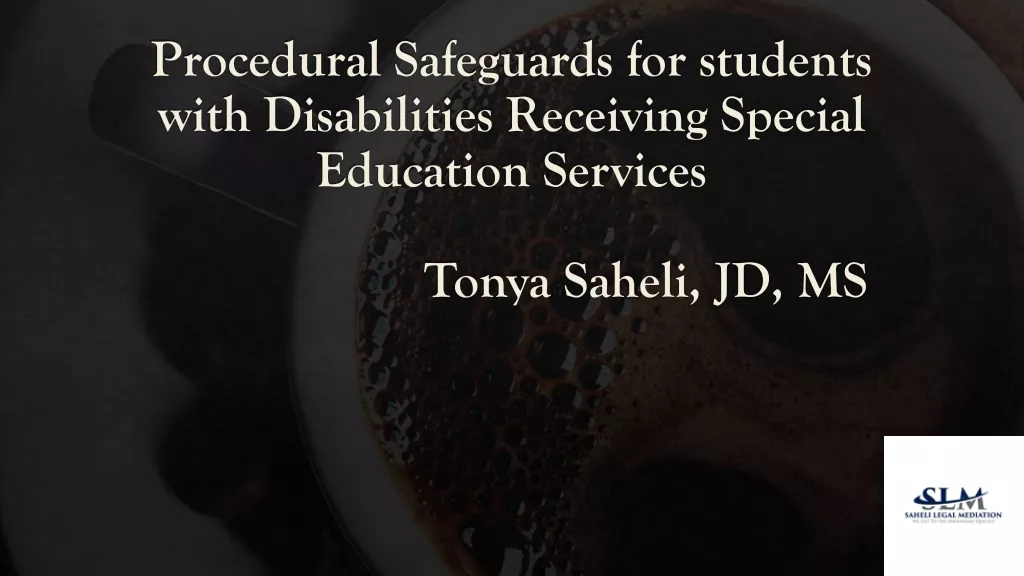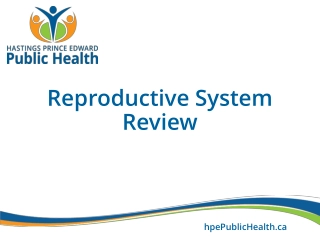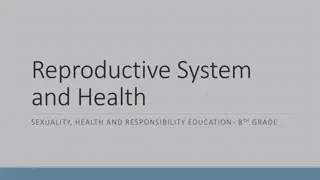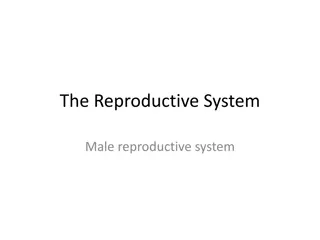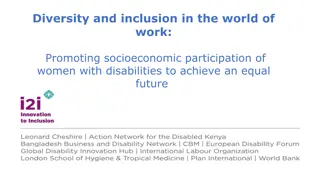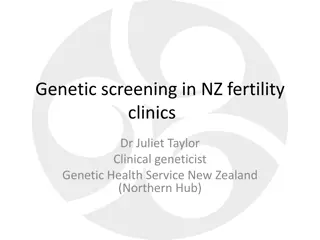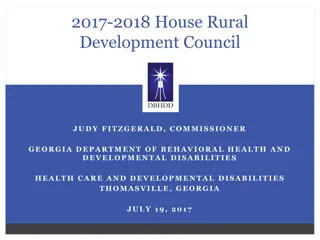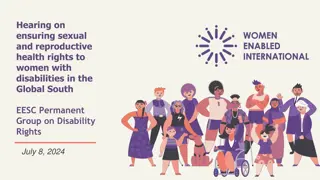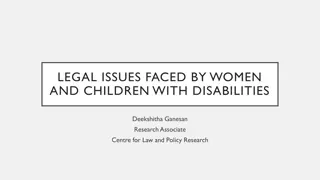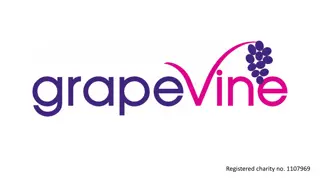Access to Reproductive Health Care for Parents with Disabilities
Empower parents and prospective parents with disabilities by providing access to reproductive health care through the Parents Empowering Parents initiative. Learn about disability rights laws, common accessibility barriers, and the importance of inclusive reproductive health care services. Gain insights into the rights of parents and prospective parents with disabilities in various legal contexts. Enhance your understanding of the Rehabilitation Act and the Americans with Disabilities Act in relation to reproductive health care.
Download Presentation

Please find below an Image/Link to download the presentation.
The content on the website is provided AS IS for your information and personal use only. It may not be sold, licensed, or shared on other websites without obtaining consent from the author. Download presentation by click this link. If you encounter any issues during the download, it is possible that the publisher has removed the file from their server.
E N D
Presentation Transcript
Access to Reproductive Health Care for Parents and Prospective Parents with Disabilities Robyn M. Powell, M.A., J.D. Parents Empowering Parents: National Research Center for Parents with Disabilities and their Families
Acknowledgements Support was provided by the grant #90DP6E0001-01-00, from the National Institute for Disability, Independent Living, and Rehabilitation Research (NIDILRR), US Department of Health and Human Services, and the Lurie Institute for Disability Policy. The opinions and conclusions are solely mine and should not be construed as representing the sponsor.
Legal disclaimer The information on this webinar is provided for informational purposes and is not intended to be legal advice regarding any specific situation. Any links to third- party websites are provided as a courtesy and are not intended to nor do they constitute an endorsement of the linked materials. The information you obtain on this webinar is not, nor is it intended to be, legal advice. You should consult an attorney for advice regarding your individual situation.
Parents Empowering Parents Parents Empowering Parents (PEP): National Research Center on Parents with Disabilities and their Families is a cross-disability initiative guided by the ethos of the disability community, nothing about us without us. Through services, research, and advocacy, the Center provides instruction and information about health and parenting services for parents with disabilities and their families.
Training curriculum Introduction to disability rights law The rights of parents with disabilities in child welfare and family law The rights of prospective parents with disabilities in adoption and foster care Access to reproductive health care for parents and prospective parents with disabilities www.centerforparentswithdisabilities.org
Learning objectives Learn about reproductive health care Understand the basics of the Rehabilitation Act and the Americans with Disabilities Act Describe how disability rights laws relate to reproductive health care Identify common accessibility barriers in reproductive health care
What is reproductive health care? Family planning services, counseling and information Prenatal, postnatal and delivery care Treatment for reproductive tract infections & STDs Pap smear tests Mammograms Infertility treatment, assisted reproductive technologies And much, much more
Disability rights laws Americans with Disabilities Act (ADA) Became law in 1990 Applies to employment (Title I); state and local governments (Title II); places of public accommodation (Title III); telecommunications (Title IV) Section 504 of the Rehabilitation Act Became law in 1973 Applies to federal agencies and entities receiving federal funding
Who is a person with a disability under ADA and Section 504? Three ways to meet definition: Physical or mental impairment that substantially limits one or more major life activities or major bodily functions; A record of such an impairment; OR (e.g., history of heart disease) Being regarded as having such an impairment didn't substantially limit) (e.g., employer fires employee after rumor of HIV, although it
How do disability rights laws apply to reproductive health care? ADA and Section 504 of the Rehabilitation Act Title II state or local hospitals, clinics Title III doctors offices, hospitals Section 504 providers that receive federal funding (e.g., Medicaid or Medicare
Non-discrimination requirements Integration Equal opportunity Eligibility criteria Reasonable modifications Effective communication Physical access Individualized assessment Note: cannot charge or impose additional requirements
Common accessibility barriers Structural physical access, ramps, elevators Equipment exam tables, scales, hospital beds Programmatic communication, appointments, changes in policies, training
Things to consider Categorical denials violate the ADA Bias providers still harbor stereotypes about people with disabilities being parents Remember, you have rights before, during, and after delivery! This includes hospital stays (e.g., accessible room, access in the NICU)
Exceptions/defenses Fundamental alteration Undue financial and administrative burdens Direct threat Legitimate safety requirements
How to file complaints with DOJ & HHS DOJ Civil Rights Division, Disability Rights Section http://www.ada.gov/filing_complaint.htm HHS Office for Civil Rights https://ocrportal.hhs.gov/ocr/portal/lobby.jsf
Additional resources and tools Protection and Advocacy organizations www.ndrn.org ADA National Network www.adata.org Department of Justice www.ada.gov
THANK YOU! Robyn M. Powell rpowell@brandeis.edu www.centerforparentswithdisabilities.org


